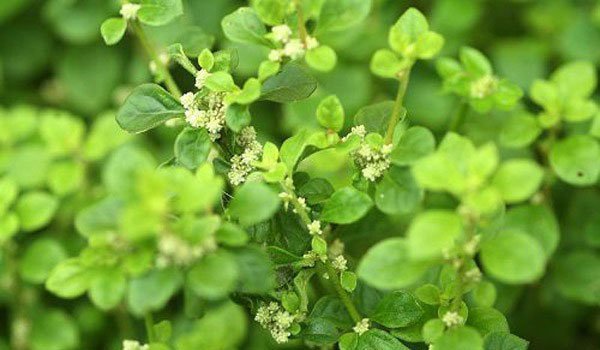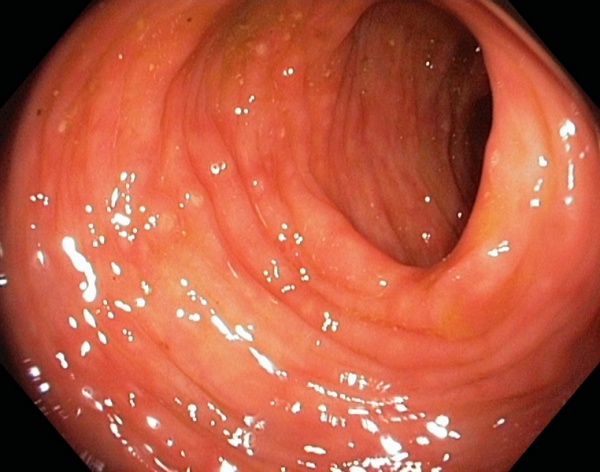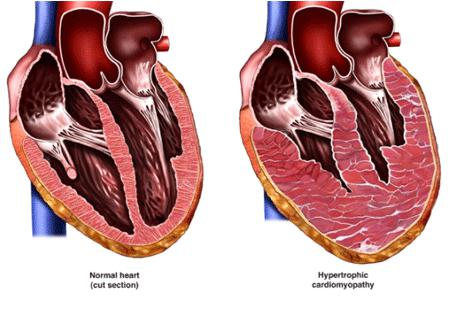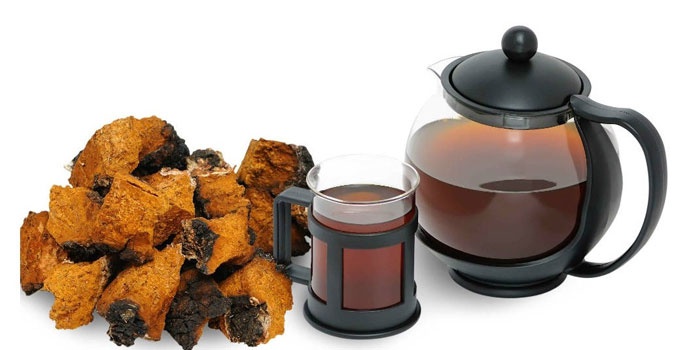Inflammation of the appendages: treatment at home
According to statistics, approximately 60% of diseases of the female reproductive system develop against the background of inflammation of the fallopian tubes and ovaries - appendages. Treatment of inflammation of the appendages is a long process, including drug therapy and the use of folk remedies. The disease is called salpingoophoritis or adnexitis. Rarely, there are conditions when the process affects only the ovaries - this is oophoritis, or only the fallopian tubes - salpingitis.
Disease development factors and symptoms
In a healthy body, the appendages are sterile and do not have pathogenic microflora. The inflammatory process develops when the infection penetrates from the uterus and vagina (ascending) or from the organs located above (descending). The causative agents of the disease are:
- Specific microflora, for example, gonococci. In this case, the inflammatory process is most acute, causing serious complications.
- Pathogenic microorganisms - penetrating into the body, cause an inflammatory-infectious process.
- Conditionally pathogenic bacteria - are constantly present in the body, without causing harm with a small number and a strong immune system. When favorable conditions are created, they begin to actively multiply, causing disease. Conditionally pathogenic bacteria include streptococci, staphylococci, Escherichia coli, etc.
Infection can provoke inflammation under the influence of provoking factors, which include:
- weakened immune system;
- hypothermia;
- stressful situations;
- irrational nutrition;
- endocrine disorders, hormonal imbalance;
- tissue damage during abortion, childbirth, curettage;
- intrauterine contraception;
- chronic infectious diseases.
The early stage of the disease is characterized by the absence of severe symptoms, which makes diagnosis difficult. Typical symptoms of a progressive inflammatory process:
- persistent or paroxysmal pain in the lower abdomen, radiating to the sacrum or lumbar region;
- failure of the menstrual cycle, menstruation, accompanied by pain;
- purulent vaginal discharge with an unpleasant odor;
- decreased sex drive.
The development of the disease may be accompanied by disorders of the urinary and nervous systems. Due to impaired production of sex hormones, the condition of the skin, nails and hair may worsen. Possible failures of the digestive tract, manifested by nausea, vomiting, bloating. Sometimes there may be an increased body temperature.
Decoctions, infusions for oral administration
Treatment of inflammation of the appendages begins with the establishment of the cause and its elimination. At home, you can successfully fight the inflammatory process. For this, there are many folk remedies for both external and internal use.
An effective anti-inflammatory and tonic is an infusion of rose hips and black currant. Ingredients in equal amounts should be brewed with boiling water, like regular tea, preferably in a thermos. Drink infusion throughout the day, you can add honey.
Alcohol infusion of ortilia lopsided, in addition to inflammation of the appendages, helps the uterus, obstruction of the fallopian tubes, bleeding fibroma, polyps, and infertility. It is necessary to infuse 50 g of grass with 0.5 liters of vodka or alcohol for 2 weeks in a dark place. Take the medicine one hour before meals, 35 drops three times a day.
Pour 1 tbsp. l. boron uterus 0.25 liters of boiling water, filter after 2 hours. For a month, drink this infusion half an hour before meals 3 times a day, 60-70 ml each. After treatment with a boron uterus, you need to take an infusion of money (field yarutka).
Brew 250 ml of boiling water 1.5 tbsp. l. money money herbs, cover with a lid, wrap up, leave for 4 hours. Take 30 minutes before meals, 1 tsp. filtered agent up to 4 times a day for 2 months. The infusion not only helps fight inflammation of the appendages, but also increases the likelihood of pregnancy.
Mix bottom grass, coltsfoot, calendula, chamomile, centaury in equal parts, grind. Pour 0.5 liters of boiling water 2 tbsp. l. collection, leave for 2 hours, then filter. Drink up to 6 times a day before meals, 70 ml of medication. The duration of treatment with infusion is 2 months.
Pumpkin has anti-inflammatory properties, strengthens the immune system. It is recommended to add it to the diet for inflammation of the appendages. You can drink pumpkin juice in unlimited quantities. To do this, pass the pumpkin pulp through a meat grinder, squeeze the juice through gauze.
Anise thigh needs to be crushed, pour 1 liter of hot water 1 tbsp. l. raw materials, after boiling, cook for 10 minutes over low heat, cool. Strained broth is recommended to drink during the day. You can add some honey.
Insist for 4 hours 15 crushed juniper fruits in 250 ml of boiling water. It should be taken three times a day for 1 tbsp. l. filtered agent. Additionally, you can douche this infusion in the morning and evening, diluting it with boiled water.
Decoctions and infusions for external use
If the appendages hurt, you can use herbal decoctions and infusions as a means for vaginal douching and soaking tampons. The advantage of topical treatment is that it acts directly on the inflamed area without adversely affecting healthy organs. During treatment, sexual intercourse should be abstained.
Onion decoction is recommended for daily douching. It is necessary to boil a large onion in 1 liter of water so that it is completely boiled, cool, filter. Douche with warm broth up to 3 times a day. After the procedures, it is important to avoid hypothermia.
![]() Mix equal amounts of propolis and honey, heat in a steam bath, stirring, avoiding boiling. The tampon should be abundantly soaked with this medicine, inserted into the vagina as deeply as possible, left overnight. The duration of treatment is 10 days. Propolis can be replaced with sea buckthorn oil.
Mix equal amounts of propolis and honey, heat in a steam bath, stirring, avoiding boiling. The tampon should be abundantly soaked with this medicine, inserted into the vagina as deeply as possible, left overnight. The duration of treatment is 10 days. Propolis can be replaced with sea buckthorn oil.
Mix 20 g of yarrow herb, sage leaves and rosemary, add 40 g of oak bark, grind, pour 3 liters of water, heat for 30 minutes in a water bath. With inflammation of the appendages, it is recommended to use a decoction for daily vaginal douching.
Brew 1.5 liters of boiling water for 10 g of St. John's wort and nettle, 5 g of chamomile, mistletoe, rose petals, lungwort root and oak bark, heat for 20 minutes in a water bath, insist for 30 minutes. The filtered decoction is used for douching 2 times a day.
To stop inflammation, it is recommended to use chamomile infusion as a douching agent. Pour 500 ml of boiling water 1 tbsp. l. crushed herbs, leave for 30 minutes, then filter. Douche daily twice a day.
Dilute honey with warm water in a ratio of 1: 2, soak a tampon with this solution, insert it into the vagina, leave for several hours. The procedure should be carried out daily for 2 weeks. You can also use honey with aloe vera juice by mixing them in equal parts.
You can treat inflammation of the appendages with tea tree oil tampons. It has bactericidal, antifungal, antiviral and immunostimulating properties. The tampon should be abundantly soaked in tea tree oil, inserted into the vagina for an hour. Carry out procedures twice a day.
Tea tree essential oil can be used for douching. To prepare the solution, you need to mix 5 drops of essential oil with 0.5 tsp. baking soda, diluted in 200 ml of boiled water at a comfortable temperature.
Possible Complications
With untimely or inadequate treatment of inflammation of the appendages, the disease can become chronic. A chronic disease is more difficult to treat, can cause female infertility and spontaneous abortion. In the inflammatory process, tissue scarring, narrowing of the fallopian tubes, and the formation of adhesions occur, which greatly increases the likelihood of an ectopic pregnancy.
The long-term course of the disease can lead to suppuration of the fallopian tubes and ovaries. The spread of inflammation can provoke the development of cystitis, pyelonephritis and other serious diseases.
In some cases, the only remedy for recovery is the removal of the ovaries, which negatively affects the general condition of the female body, contributes to the onset of early menopause, due to a lack of sex hormones.
Prevention
You can reduce the likelihood of developing inflammation of the appendages by following simple recommendations:
- avoid hypothermia;
- observe the rules of hygiene;
- avoid casual sexual contact;
- eat right, including more vegetables, fruits, greens in the diet;
- live a healthy life;
- avoid stressful situations and overwork;
- strengthen the immune system
- see a gynecologist regularly.
Fermented milk products contain lactobacilli, which contribute to the preservation of the natural vaginal microflora, so their regular use is useful as a means of preventing inflammation of the appendages. Lactobacilli produce lactic acid, which is necessary to maintain an acidic vaginal environment, which is an obstacle to the growth of pathogenic microorganisms.
- Intercostal neuralgia - what is it and how to treat
- How to quickly get rid of dry corns on the legs
- How to treat left ventricular hypertrophy
- Rating of the best drugs for rotavirus for children
- Making tea from currant leaves, the benefits and harms of the drink
- How to drink hydrogen peroxide according to Neumyvakin - an oral regimen
- Features of the treatment of plantar fasciitis with folk remedies
- The composition and beneficial properties of parsley root
- How to get pregnant quickly? Folk remedies
- Herbs-ants in the "pot-bellied" period or the use of herbal medicine during pregnancy
- Why does a sore throat and dry cough occur, and what treatment is required?
- Guy's Room Design: Ideas and Examples
- General rules for drawing up a foundation plan House foundation drawings
- modern art deco bedroom small art deco bedroom
- Pansies: characteristics and photos of flowers
- Making an art deco bedroom: the choice of materials Beige art deco bedroom
- Bedroom interiors in art deco style Bedroom art deco style beige
- Young: planting and care in the open field Young planting and care in the open
- Varieties for open ground
- Pansies: cultivation and care in the open field









